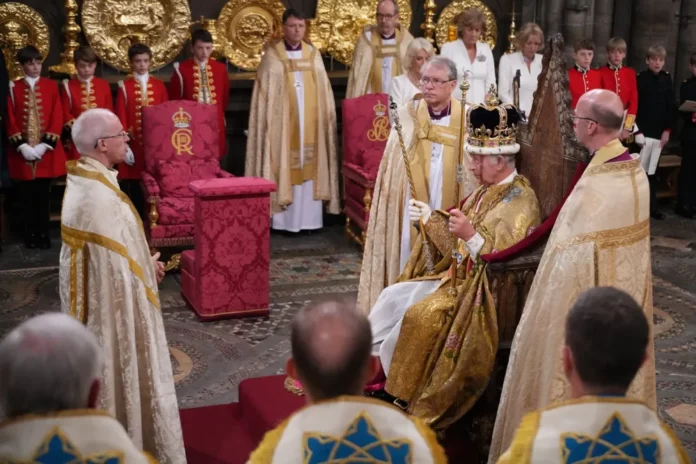Being the archbishop of Canterbury, head of the Church of England, has always been a risky business. Modern incumbents are not likely to be murdered before their own altar, beheaded by Puritans, or burned as a martyr. But being the leader of 85 million believers in the world’s third-largest Christian group—the Anglican Communion—is still a tricky and frustrating job, as Justin Welby, who just resigned on Nov. 12, knows too well.
Welby’s resignation was prompted by a recently concluded review into the Church of England’s actions over its worst known abuser, John Smyth.
Smyth was not a priest but rather a lawyer, and a prominent leader in the Iwerne movement, which ran evangelical youth camps that were largely targeted at the British elite. In his public life, Smyth was a virulent homophobe who successfully prosecuted Gay News for blasphemy in 1976. In private, he was obsessed with sex, and he sadistically beat teenage boys and young men, often while naked himself, claiming that it was part of their spiritual discipline.
Welby knew Smyth, and the review questioned his account of being unaware of the abuse. But that’s hardly his only problem. The Smyth case goes to the heart of Anglicanism’s modern contradictions, and it has triggered a massive crisis of faith as well as calls by the Church of England’s second most important leader, the archbishop of York, for the role of Canterbury itself to change.
For liberals, it’s a sign of the inherent hypocrisy of conservative evangelism. “It’s very difficult to hold that set of beliefs and not be colluding with abuse,” Alison Webster, a progressive Methodist who worked for the Church of England for 25 years, told Foreign Policy. “It’s an authoritarian theology and a deeply sexist one.”
Like other religions, Anglicanism has been struggling with its past failures over abuse.
“Every time you tried to talk about it, nobody wanted to listen, and nobody really wanted to believe abuse could take place inside a Christian context,” Webster said. But after the exposure of other abusers from the 1990s onward, the Church had—slowly and painfully—developed a set of safeguarding norms.
Welby, formerly the bishop of Durham, came into office as archbishop in 2013 hoping to address past abuses and bring the communion together. But he didn’t have an easy task. Andrew Brown, a religious correspondent and the co-author of a book on the Church of England, told Foreign Policy, “Being archbishop was already an impossible job when Rowan [Williams, the previous archbishop] took it up.”
That impossibility stems from Anglicanism’s sheer reach. The archbishop of Canterbury does not have the same hierarchical power as Catholicism’s pope—but he is considered “first among equals” in a huge communion. The Church of England is proverbially a broad church, covering a vast range of practices and doctrines from Anglo-Catholic ritual to evangelical preaching. But the wider Anglican Communion—descended from the Church of England—is also geographically vast, spanning from Papua New Guinea to Boston.
That span is a legacy of the British Empire and the Anglican missionaries who accompanied it. The handling of Smyth fell firmly into the imperial tradition. A 1982 report, which stayed internal to the Iwerne movement, concluded that he had committed multiple “sadistic” and “evil” criminal offences. Nevertheless, the police were not notified. Instead, Smyth was reportedly encouraged to move to Zimbabwe with financial help from other evangelicals.
There he continued his abuses, until the Zimbabwean police became aware of his actions after the mysterious death of a 16-year-old boy in his care. He fled again, this time to South Africa, where he is believed to have abused more children before his death in 2018. At no point did the English church leaders who knew of his abuses reach out to their African counterparts to warn them, nor did they contact police when news of his abuses reemerged in 2013.
Read it all at Foreign Policy



